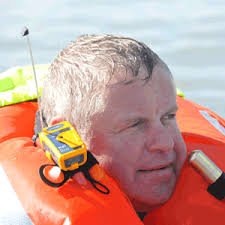Jon magowan
Member
I’m thinking it’s time I invested in one of these safety devices. Typically my sailing is coastal, within the Uk and near Europe and certainly not oceanic.
Initially I thought I should get an EPIRB, then I thought, hang on, wouldn’t a PLB be much more versatile? As a MOB you can activate yourself or as an observer of MOB you can activate your own personal PLB to alert the CG. The big advantage being that the rescue services can go directly to the MOB. I can’t really see any disadvantages with the PLB over the EPIRB. (Incidentally me and my crew always wear lifejackets unless we’re tied up or at anchor).
Am I missing something?
Very interested to hear your views.
Initially I thought I should get an EPIRB, then I thought, hang on, wouldn’t a PLB be much more versatile? As a MOB you can activate yourself or as an observer of MOB you can activate your own personal PLB to alert the CG. The big advantage being that the rescue services can go directly to the MOB. I can’t really see any disadvantages with the PLB over the EPIRB. (Incidentally me and my crew always wear lifejackets unless we’re tied up or at anchor).
Am I missing something?
Very interested to hear your views.

